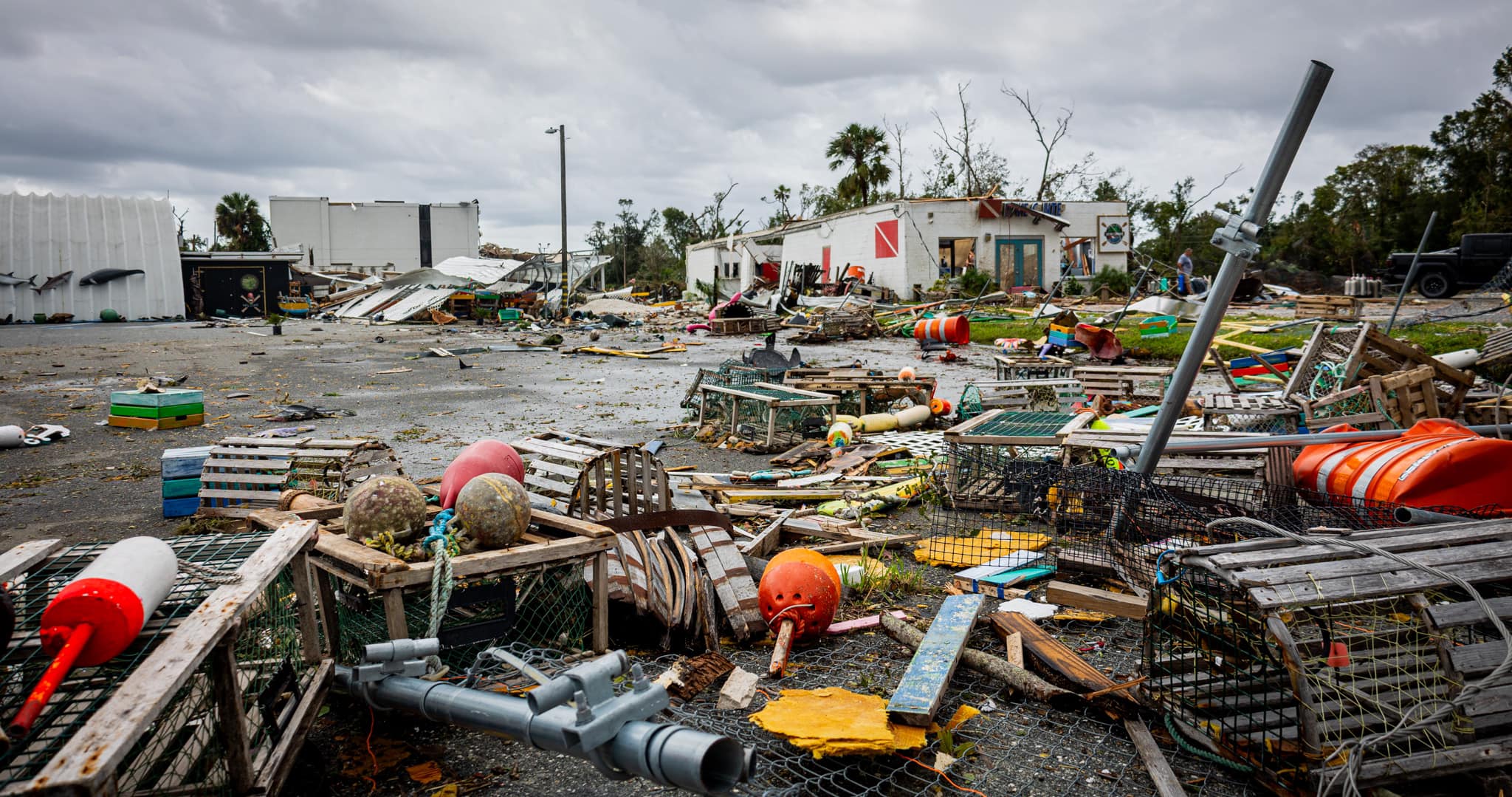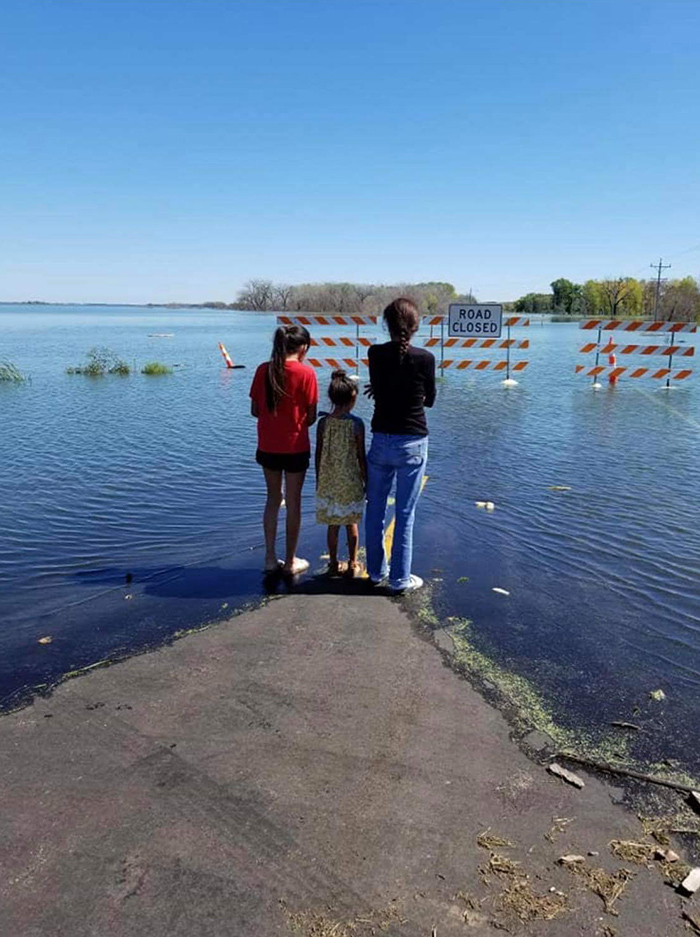What we’re watching: Weekly disaster update, October 16

We know all too well that disaster can strike anytime, anywhere in the world. Some disasters make headlines; others do not. Here at the Center for Disaster Philanthropy (CDP), we monitor the status of disasters worldwide and compile a list of the ones we’re tracking weekly, along with relevant disaster-related media coverage.
Here’s what we’re watching for the week of Oct. 16, 2023.
New or Emerging Disasters
Hurricane – Mexico: Hurricane Lidia made landfall in the small beach town of Las Penitas, Mexico, on Oct. 10 as a Category 4 storm. Ahead of the storm, Mexico’s President Andrés Manuel López Obrador said 6,000 members of the armed forces had been deployed. The hurricane downed power lines, caused rivers to overflow and suspended classes in dozens of municipalities. At least two people were killed and two injured by the strong storm, which weakened as it moved inland. Lidia is among the strongest landfalling Pacific hurricanes on record for Mexico.
Flooding – Ghana: Heavy rainfall has resulted in the overflowing of the Akosombo Dam in Ghana, displacing thousands and causing significant damage. The Akosombo Dam, also known as the Volta Dam, is a hydroelectric dam on the Volta River in southeastern Ghana. More than 4,000 residents in Ghana’s southeastern region have been forced to leave their homes, and the disaster led to the disruption of essential services, with some areas lacking access to water and electricity. In Kokonte Kpedzi alone, at least seven children were injured, and homes and fishing equipment were damaged.
Tornadoes – Florida: The National Weather Service confirmed two tornadoes swept through western Florida on Oct. 12, with damage reported near Crystal River and Clearwater Beach. The tornadoes produced wind gusts of 115 and 125 miles per hour, respectively, knocked over trees and power lines, and damaged buildings.
For more, see our 2023 US Tornadoes disaster profile.
Previous/Ongoing Disasters
Complex Humanitarian Emergency – Gaza and Israel: As the conflict entered its eighth day on Oct. 15, Lynn Hastings, the UN Resident Coordinator and Humanitarian Coordinator for the Occupied Palestinian Territory, called for the unconditional and immediate release of hostages being held by Hamas and also urged “immediate unconditional access” into Gaza for the delivery of life-saving aid.
The UN Relief and Works Agency for Palestine Refugees in the Near East (UNRWA) said in its Oct. 16 situation report that more than one million people, almost half the population of Gaza, have been displaced. UNRWA added, “For the fifth consecutive day, Gaza has had no electricity, pushing vital services, including health, water and sanitation, to the brink of collapse and worsening food insecurity.” CDP has issued a statement on the crisis.
Earthquake – Afghanistan: On Oct. 15, the western province of Herat was hit with its third 6.3 magnitude earthquake since powerful quakes on Oct. 8 killed thousands and caused significant damage. The Oct. 15 earthquake was followed by a magnitude 5.5 aftershock 20 minutes later.
Save the Children said four people died in the latest earthquake, and Herat Regional Hospital received 153 injured. These casualty figures are not expected to rise significantly as many were already living in the open out of fear their homes would collapse.
As of Oct. 16, the UN Office for the Coordination of Humanitarian Affairs said 43,395 people had been affected by the earthquakes. The district of Injil was the worst affected, with 53% of people affected. More than 3,330 homes are reportedly destroyed – the majority in Zindajan district. Humanitarian partners are actively engaged in relief efforts and community assessments.
For more, see our Afghanistan Humanitarian Crisis disaster profile.
Heatwave – Arizona: Maricopa County, Arizona, which includes the city of Phoenix, is the hottest metropolitan area in the U.S. The county said 361 heat-associated deaths have been confirmed this year as of Oct. 7. Another 126 deaths are being studied, and 2023 may surpass the county’s annual record set last year. The summer of 2023 brought to Phoenix the hottest three months since record-keeping began in 1895.
Check this resource from the National Weather Service to learn about the difference between heat warnings, watches and advisories.
CDP’s Extreme Heat Issue Insight provides information about this natural hazard and recommendations for philanthropy.
In addition to the disasters listed above, we actively monitor the following disasters or humanitarian emergencies. For more information, see the relevant disaster profiles, which are updated regularly.
- 2023 Atlantic Hurricane Season
- Horn of Africa Hunger Crisis
- 2023 Libya Floods
- 2023 Morocco Earthquake
- Sudan Humanitarian Crisis
- 2023 US Tornadoes
- 2023 Turkey-Syria Earthquake
- Ukraine Humanitarian Crisis
U.S. Midwest Low-Attention Disasters
The Midwest is regularly faced with low-attention disasters that affect people across the region. CDP’s Midwest Early Recovery Fund (ERF) effectively funds efforts that catalyze equitable disaster recovery.
This is one of the latest disasters and related news the ERF team is monitoring:
- On Oct. 11, President Biden approved Montana’s major disaster declaration for flooding on June 8.
Complex Humanitarian Emergencies – Haiti
Many places worldwide are experiencing emergencies caused by conflict, climate change, drought, famine, economic challenges and other conditions that combine to create a complex humanitarian emergency (CHE). CDP maintains complete profiles on several CHEs, and what CDP considers Level 1 CHEs are profiled in this weekly blog post and tracked.
The latest Integrated Food Security Phase Classification report shows that 4.35 million people in Haiti are experiencing high levels of acute food insecurity between August 2023 and February 2024. The report says violence caused by armed groups, economic slowdown and climate-related effects continue to drive high levels of hunger in Haiti.
Jean-Martin Bauer, World Food Programme Country Director in Haiti, said on Sept. 19, “As I travelled across the country in reach [sic] months, I’ve seen how food aid is one of the key factors preventing Haitians from sliding into famine. However, emergency levels of food insecurity persist in several regions, while funding is at a critically low level.”
Gangs are estimated to control or exercise influence over 80% of the Port-au-Prince metropolitan area, and their activities have expanded, especially to the central Artibonite Valley. In addition to terrorizing families and disrupting livelihoods, the violence in Artibonite is occurring against the backdrop of hunger and a cholera epidemic.
UN Secretary-General Antonio Guterres said in the new report to the UN Security Council that 2,728 intentional killings were recorded between October 2022 and June 2023. The UN Security Council voted on Oct. 2 to send a multinational force to Haiti led by Kenya to help combat violent gangs, but Kenya’s parliament must now approve the resolution. The U.S. has pledged $100 million to support the Kenyan-led multinational force. Some Haitians and experts wonder whether an international force will be an effective solution.
As of Oct. 16, donors had funded only 27.9% of Haiti’s 2023 Humanitarian Response Plan.
Upcoming webinar
Nov. 9: Indigenous land management: Decreasing disasters and increasing resilience

What We’re Reading
- What happens when America’s flood insurance market goes underwater? – Grist: “More homeowners than ever need flood insurance. Fewer than ever can afford it.”
- Study finds more people are moving into high flood zones, increasing risk of water disasters – Associated Press: Since 1985, the number of the world’s settlements in the riskiest flood zones has increased 122%, compared to 80% for the safest areas, according to a study by researchers at The World Bank.
- Climate crisis is ‘not gender neutral’: UN calls for more policy focus on women – The Guardian: A report published by the UN Population Fund and Queen Mary University of London is the first to examine whether climate plans refer to sexual and reproductive health. The report said the climate crisis exacerbated existing inequalities.
- Weather disasters caused by climate change displaced 43 million children, says UNICEF – France24: The UN Children’s Fund worked with the Internal Displacement Monitoring Center and found that floods, storms, droughts and wildfires caused 43.1 million child displacements in 44 countries.
- Arab Foundations Forum Annual Meeting 2023 – Alliance: From Sept. 11-13, some of the region’s leading philanthropic voices gathered in Cairo to discuss the most pressing issues facing the Arab region. Alliance compiled conference reports and reflections from delegates.
A large female bear’s combination of “skill and toughness” earned her the top spot in Katmai National Park’s 2023 Fat Bear Week.
